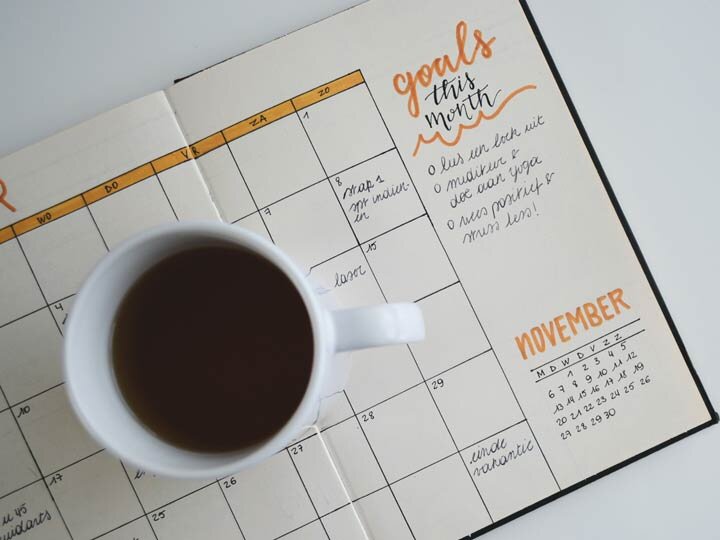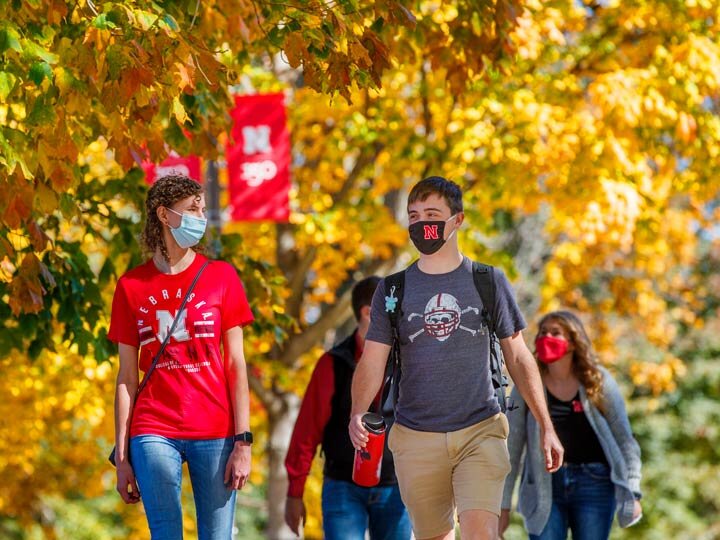Ideas for Busy College Students
Choose a self-care day of the week. This is a full day of no work, no school, no obligations. Fill in your day with activities you love; choose from those listed below of come up with your own! You deserve it.
Hangout with friends and family.
Write in a journal
Writing can help you process your feelings, ignite creativity centers in the brain and help you be in the present moment.
Read a book
Books can be a great escape that doesn’t involve screen time. Give your eyes a rest and take a break from technology to enter a new world in our mind.
Take deep breaths
Five minutes of deep breathing can lower your blood pressure and heart rate, thus lowering the physical effects of stress.
Do something you love
Carve out time for your passions and hobbies. They can help provide an outlet for managing stress and can increase happiness.
Practice self-compassion
Self-compassion is treating yourself like you would treat your best friend. Talk to yourself the way you would talk to someone you care about; replace self-critical thoughts with compassionate thoughts.
Spend time in nature
Listen to music
Music is a great escape and mind relaxer. Discover a new artist, make a new playlist or watch your favorite music videos.
Make a schedule
Routines can help the mind stay organized and focused on the current tasks at hand. Using a schedule to prioritize what is important can help your mind from worrying about deadlines, efficiency and workloads.
Unplug from technology
Research shows that downtime replenishes the brain’s stores of attention and motivation, encourages productivity and creativity, and is essential to both achieve our highest levels of performance and simply form stable memories in everyday life.
Participate in yoga and meditation
Yoga has pronounced effects on your emotional well-being and can help lower anxiety and stress. Research shows that meditation can improve your focus, immunity and overall mental well-being.
Expand your knowledge
Choose a topic you’re genuinely interested in and learn more through documentaries, books, podcasts and more. Your brain loves to learn, feed it!
Pamper yourself
There is nothing better than ending a long week or starting a new week with a pampering day. Take a bubble bath, do a face and/or hair mask, paint your nails, indulge in skin/body care, anything that makes you feel good about your body and your health.
GOALS are key.
Set goals weekly, monthly and yearly that help you visualize accomplishments. They’ll provide satisfaction of tangible and visible completion.
Try This
Use a planner, calendar or designated app to keep track of all short- and long-term goals. A visual timeline can help break up tasks and show gradual process.
The Evidence
Students who are on-track to complete their degrees on time and who feel well prepared for the work required to complete their degrees have higher life satisfaction and fewer depressive symptoms than those who are not on-track and feel ill-prepared.

FINANCIAL CONFIDENCE is key.
Understanding finances and having a plan is key to reducing stress about money and having security for the future.
Try This
Keep track of your spending for one month and create a budget that makes sense for you. It’ll help you reach your short- and long-term goals. To learn more, meet with a money coach.
The Evidence
Students mention financial concerns often. Students who have confidence in their finances are more satisfied with their lives and exhibit less depressive symptoms.

SLEEP is key.
Sleep is a very important aspect of physical, mental, emotional and intellectual well-being. Giving the body and mind a chance to relax, repair and refresh.
Try This
An hour before going to bed stay off your phone, laptop and TV, and leave school work alone. Try meditating before bed to fully relax and prepare for sleep. Ensure you get a full eight hours of sleep each night.
The Evidence
Sleep is a known correlate of depression, and research by experts like UC Berkeley professor Allison Harvey suggests that simply improving sleep can substantially reduce depressive symptoms.

CONNECTION is key.
Making regular time for family and friends can have major impacts on your stress levels, motivation and overall mood.
Try This
Try setting up weekly phone calls, dinner plans, coffee dates, FaceTime and Zoom to stay connected with people you love.
The Evidence
Students who feel they have someone with whom they can share their most private worries and fears with report greater life satisfaction and experience substantially fewer depressive symptoms.

BALANCE is key.
Setting boundaries for work, school and life can help mentally and physically separate tasks throughout the day and can help you stay engaged and focused on the task at hand.
Try This
- Choose a strategy that works for you:
- Use Sunday as a free day.
- No school work after 5 p.m.
- Don’t let work leave a “home office.”
- Or, designate each category to a time of day.
The Evidence
Students who are engaged by their day-to-day work have higher life satisfaction and fewer depressive symptoms than those who are not engaged by their day-to-day work.

TRUST is key.
Finding an advisor or mentor that you trust who can help you navigate the nuances of your academic experience can offer guidance and comfort.
Try This
Ask for help navigating classes, career advice, extra help in an area causing stress, forming relationships and networking.
The Evidence
Having an advisor who is a mentor is an important predictor of life satisfaction. They have influence on many predictors of well-being, including academic progress and preparation, finances, career prospects and feeling valued and included in the department.
